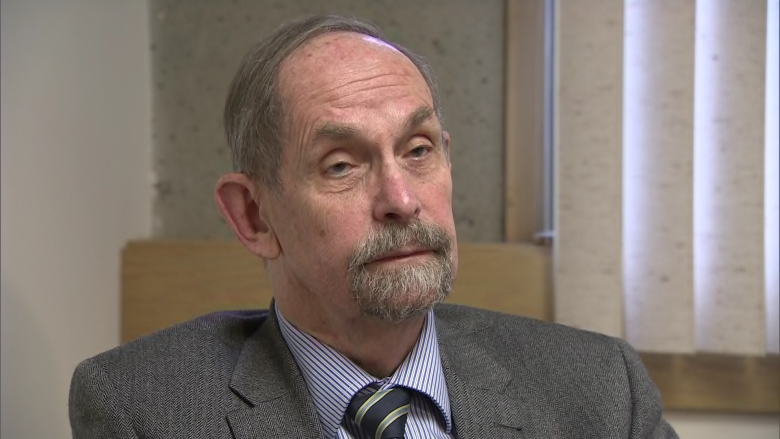Alice Zhang says complaining about care got her kicked off B.C. kidney transplant list
Alice Zhang says she's being denied a life-saving kidney transplant because doctors at Vancouver General Hospital have decided she is mentally ill.
The 45-year-old mother of two, who speaks only Cantonese, and her family say she has no history of mental illness, and that she was only removed from the transplant list for complaining about her treatment in the hemodialysis unit.
"That's what started this whole situation" Zhang, speaking through an interpreter, told CBC Investigates.
She said doctors threatened to admit her involuntarily under the Mental Health Act.
"They said if I kept making noise, they would drag me into the mental-health ward and diagnose me as having mental illness."
Zhang said that is where she ended up on two occasions.
Polycystic kidney disease
Zhang has polycystic kidney disease. She shares custody of her boys, aged nine and 11 years old.
She needs hemodialysis three times a week, and has been on the kidney transplant list since 2009.
She said a sudden diagnosis of delusional disorder came right after she filed written complaints that nurses were too rough on her injection site.
"They said, 'Right now, we are going to temporarily stop the transplant process,'" said Zhang. Hospital documents confirm that the process was halted.
"Because I complained about them, they said that to me."
According to a psychiatrist’s handwritten notes, Zhang was paranoid.
Difficult but not delusional, says family
Zhang's husband, from whom she is separated, believes doctors are misinterpreting her actions.
"If they don't even understand what she's saying, how can they say she has a mental illness?" said Lea Kwong Chow.
"This person doesn't really have great social skills. Just because of that, you can't say they have a mental illness."
Chow said that in the nearly 20 years he has known Zhang, she has never shown any signs of paranoia.
While a translator attends most appointments, Chow and Zhang said there are many informal interactions without one.
In October, the psychiatrist's handwritten note to Zhang raised concern that she was following a nurse.
"You were asking about her last name. This was interpreted as concerning behaviour," the note said.
The notes show Zhang tried to explain she had been asked to find out the nurse's last name by her lawyer, something he confirmed in a letter to Vancouver Coastal Health.
The same psychiatrist wrote, "The fact that you believe that the nurses are trying to harm you tells me that you have a mental illness ... the nurses are starting to feel threatened by you. Some of this has to do with your complaints about them."
But Zhang — who refused to take prescribed anti-psychotic drugs — said she has never said anyone tried to hurt her on purpose.
"I have never been the suspicious type," she said. "I believe they have violated my human rights."
Compliance with dialysis program important
A medical ethicist at the University of Victoria, Prof. Eike Klug believes Zhang may have been treated unfairly.
"Even if she is delusional, if that's not directly connected to the success of the transplant that is not a reason for taking her off the transplant list," he said.
Canadian transplant guidelines say a psychiatric patient can only be denied a transplant if they are not compliant with treatment.
"In this case, for example, you would have to ask, 'Has she been compliant with the dialysis program in which she is enrolled?'" said Kluge.
"If the answer is yes, then the likelihood that she will not be compliant when she is transplanted is not there."
Zhang said she faithfully goes to hemodialysis three times a week, and has only missed three sessions in the last year.
But the transplant team is not convinced she "would be able to constructively participate in the rigorous transplant treatment plans," according to a letter Zhang received.
Patient received appropriate care, says authority
Her doctors declined CBC's request for an interview, but a hospital spokesperson said Zhang received appropriate care and that there are no language barriers as the hospital has translators and many Cantonese speaking staff.
The medical director of the kidney transplant program, Dr. David Landsberg, said only if a patient’s “mental illness got in the way of their ability to comply with the treatment regimen, going to followup visits and taking the anti-rejection drugs," would they be removed from the transplant list. Landberg did not treat Zhang, but has done a kidney transplant on a delusional patient at a different hospital.
"It's definitely not our desire to deny people transplants ... especially when they're a younger woman with a family … we wouldn't want to deny her without a strong reason."
Zhang is now waiting to see a new psychiatrist for a second opinion.
Next week, she will appeal the psychiatrist’s decision to admit her involuntarily at a review board.
CBC Investigates
CBC Vancouver's award-winning team of investigative journalists wants to hear from you.
Send your confidential tips to investigate@cbc.ca.



